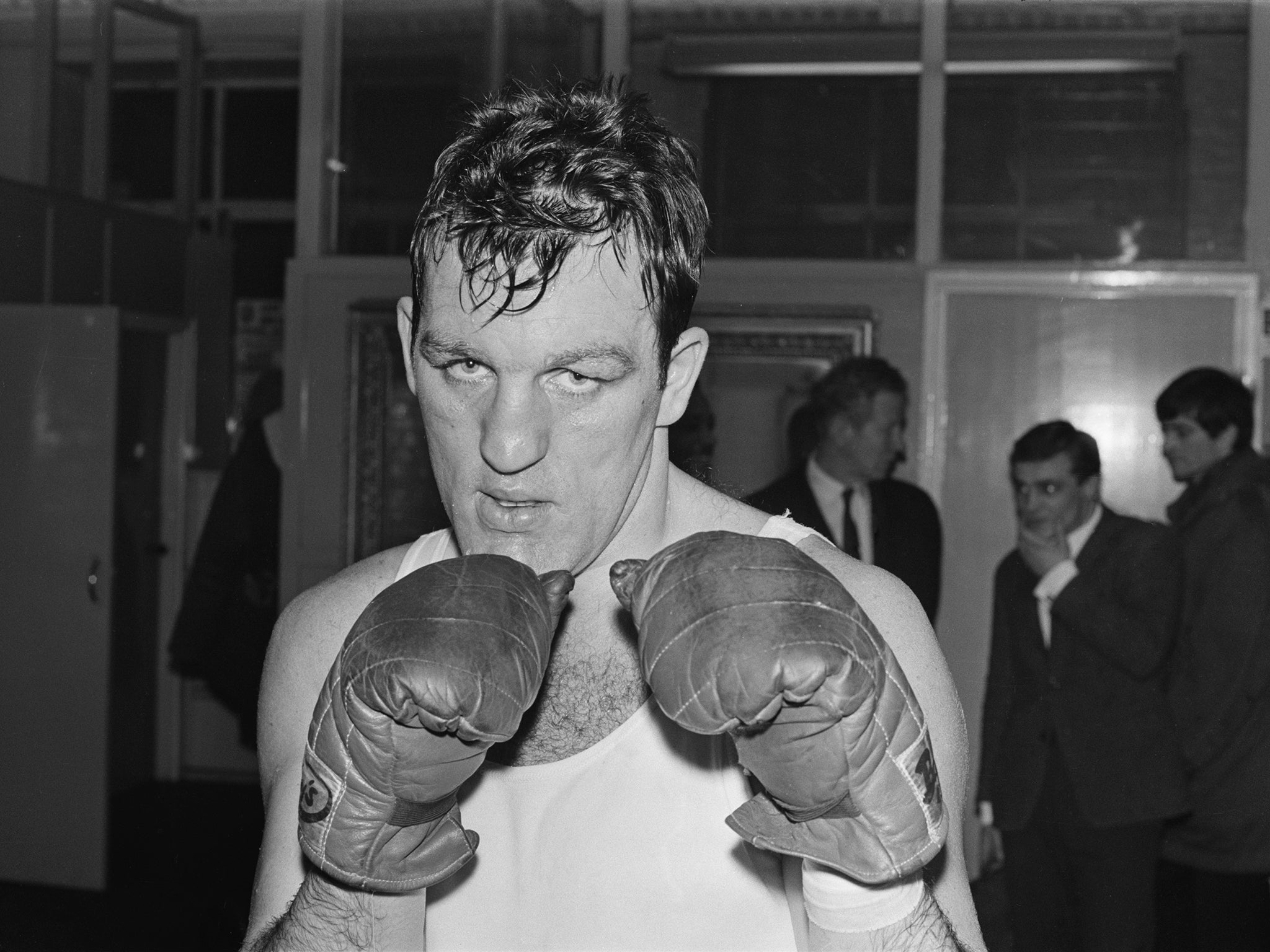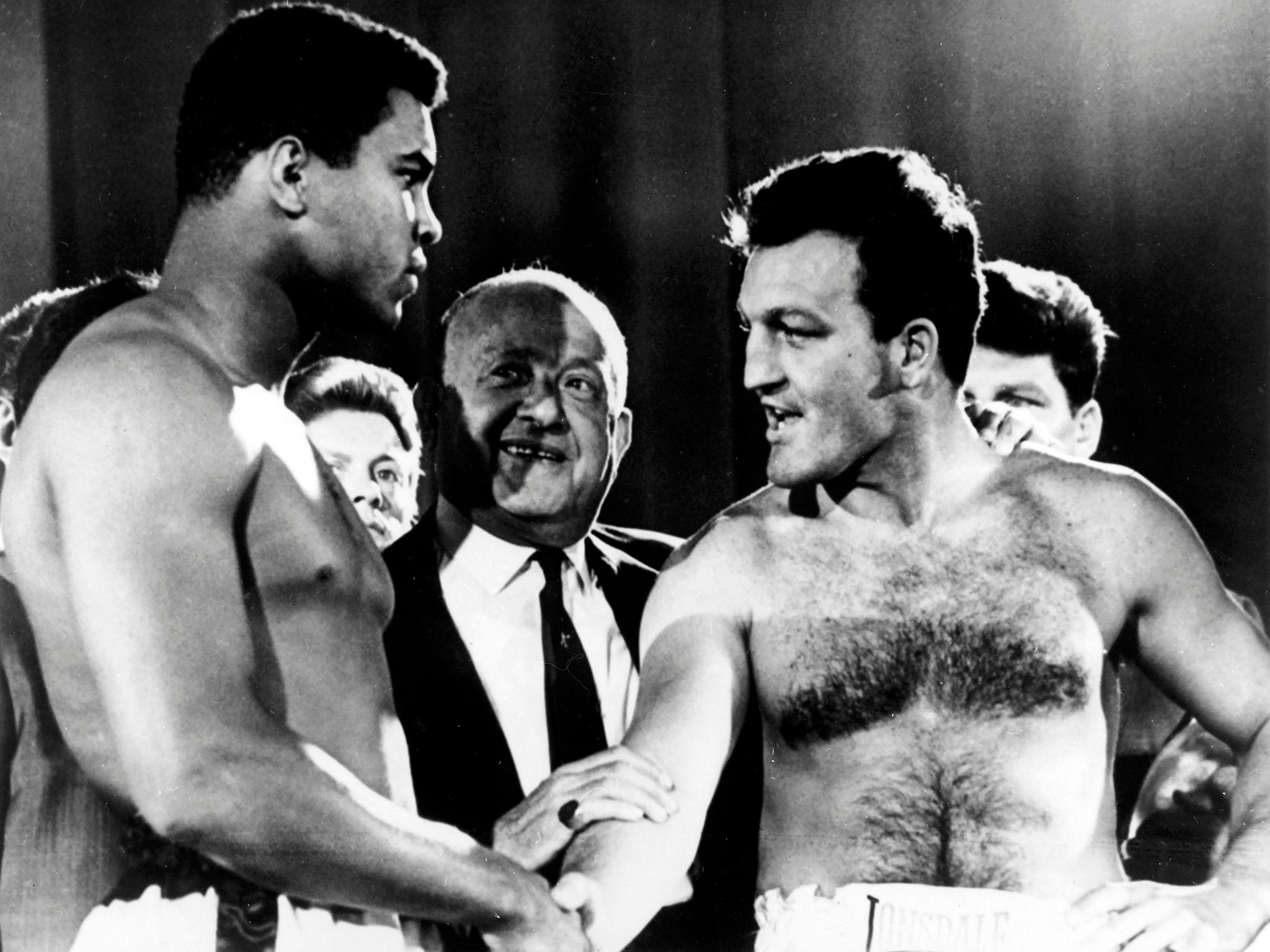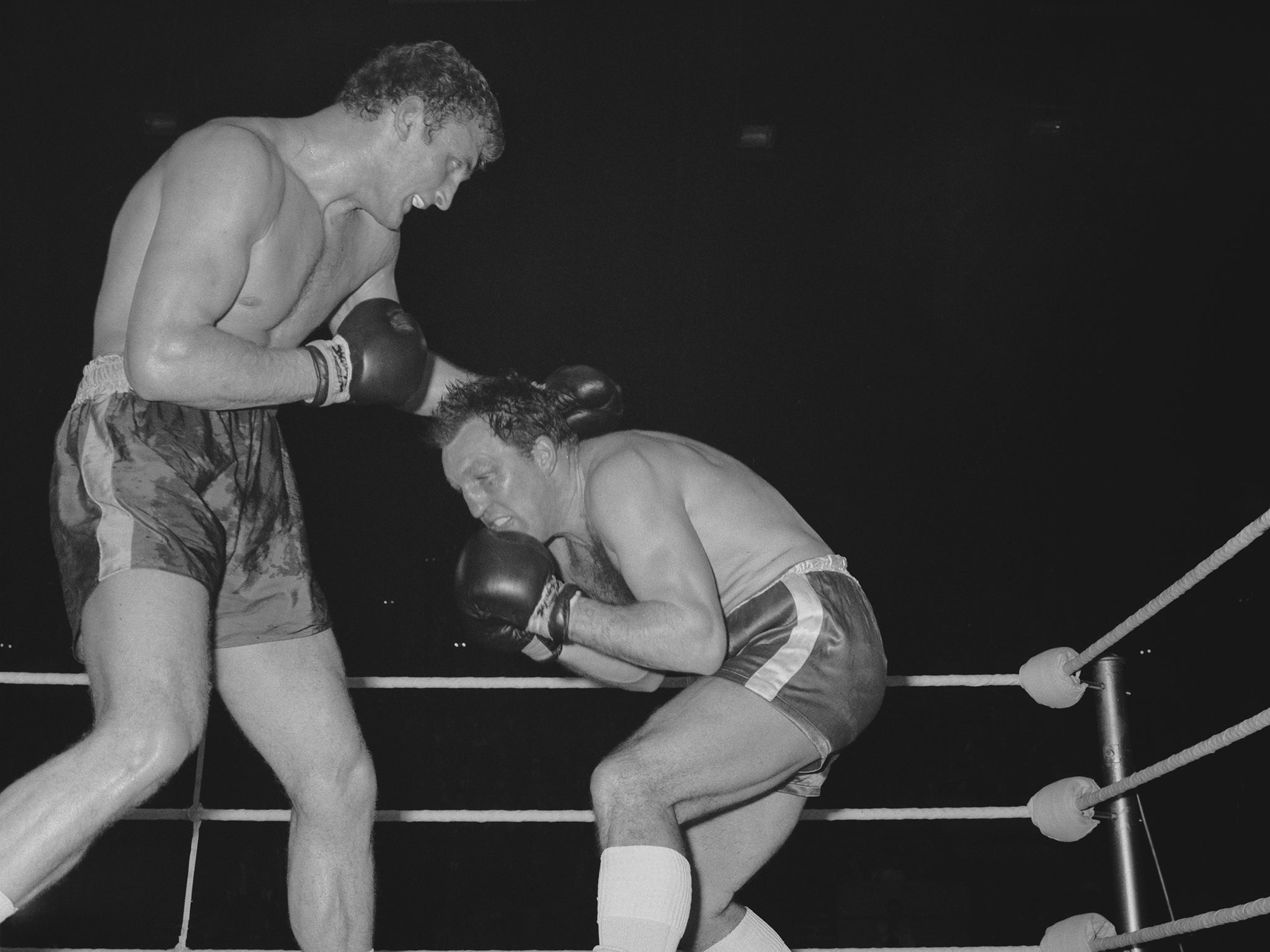Brian London: Heavyweight boxing champion known as ‘The Blackpool Rock’
London took on many of the big names of the era, including Muhammad Ali and Floyd Patterson

As the youngest son of the legendary British and Commonwealth boxing champion Jack London, it was perhaps inevitable that Brian London, who has died aged 87, would follow both his father and elder brother into the professional fight game. Having enjoyed success as an amateur, over the course of a roller coaster 15-year professional career, “The Blackpool Rock”, as he was famously known, remained a headline-grabbing competitor. However, while more than capable of challenging all the big names of the era, some of his performances could just as easily disappoint as excite. Emulating his father’s achievement in claiming the British heavyweight title, he was also the first British boxer to twice challenge for the world heavyweight crown.
Brian Sydney Harper was the youngest of two boys, born into a celebrated boxing family in West Hartlepool. Like his father and brother, he too later adopted the surname of the great American author Jack London, who covered the sport for numerous boxing magazines. Soon after moving from his native northeast to settle permanently on Lancashire’s Fylde coast, he began his boxing apprenticeship at Blackpool Boys’ Club. After working briefly as a rock roller, spelling out “BLACKPOOL” in the middle of the hard, stick-shaped boiled sugar confectionary, his sporting skills were further honed during National Service in the royal air force. Alongside the 1954 Inter Services Boxing Championship, he also won RAF, ISBA and ABA titles. That same year he also defeated the Canadian champion Gerry Buchanan to take heavyweight gold at the Vancouver Empire Games.
Turning professional in March 1955, in his debut bout, his explosive punching power disposed of Dennis Lockton in only one round. Fighting once a month, mainly in provincial halls, other early victims included Dinny Powell and the Irish champion, Paddy Slavin, while Robert Eugene became the first to take him the distance. In a little under 12 months, this 6ft 14 stone, superbly fit, rough, tough, bruiser of a fighter managed to force his way up the heavyweight rankings. Instantly recognisable with his lantern jaw, by now he was beginning to build a burgeoning fan base and arouse the interest of the media. However, a brutal introduction to the cold reality of the pro game came at Earls Court in May 1956, when Henry Cooper knocked him out in a surprising first-round defeat.

Rapidly regrouping, London then proceeded to take out George Naufahu in four rounds, outpointed Kitione Lave and Howie Turner, both over 10 rounds and, in a televised bout in Birmingham, impressed when knocking out Frenchman Robert Duquesne in the first round. He also had his first taste of the vagaries of continental judging when he lost a hotly disputed 10-round points decision to the German European champion Henry Neuhaus, in Dortmund. By now however, leading promoter Jack Solomons, aware that in London he had a genuine box office draw, set up a challenge contest for the British and Empire heavyweight title between London and the Welshman Joe Erskine, at the White City in June 1958. London knocked him out in the eighth round.
While holding the title for six months, London enjoyed a fine victory over the American Willie Pastrano before being outpointed in his first title defence, beaten for a second time by Cooper. Refused permission by the British Boxing Board of Control to then fight Floyd Patterson for the world title in Indianapolis three months later, London went ahead anyway, losing in the 11th round. In agreeing to a fight based on the purse on offer, it wouldn’t be the last time London found himself a victim of haphazard management that all too often did little to enhance his career. A wiser and more experienced corner team would also have been a benefit when he stepped up in class. As a result of taking the Patterson fight, London found himself fined £1,000 and banned for six months.

Trouble flared again in August 1960 when, at Coney Beach, Porthcawl, London attempted to capture the European title from local hero Dick Richardson. This open-air contest, watched by a crowd of 38,000, turned out to be a great disappointment. As London piled on the points, in the eighth round of a somewhat foul-strewn contest, Richardson’s head opened up an old cut over London’s eye. With his corner unable to stem the bleeding, referee Andrew Smythe duly stopped the contest in Richardson’s favour. Totally incensed, the London family rushed across the ring en masse to confront the opposing camp. A full-blooded free-for-all dubbed “The Brawl in Porthcawl”, duly followed. Fined a further £1,000, this time London was banned for three months.
Of his 58 professional contests, three in particular drew stinging criticism as both the press and supporters questioned his tactical acumen, general approach and overall motivation. The first was that 1959 fight with Patterson. The second was his encounter two years later with the highly talented but surprisingly underrated American Eddie Machen, when his corner threw in the towel after only five rounds. London always argued that Machen was one of the best boxers he ever fought. However, it was his challenge for the world heavyweight title with Muhammad Ali at Earls Court in August 1966, that undoubtedly ranks as his most forgettable. Knocked out in three rounds, such a lamentable capitulation certainly had a lasting effect on his standing with the boxing public.
He did also take part in many far more memorable contests. The likes of Ingemar Johansson, Zora Folley and Pastrano were among those who brought out the very best in him. His fight with Billy Walkerin March 1965 also remains a fascinating encounter, the Londoner’s power and ambition pitted against the northerner’s greater experience. Having survived an early onslaught, London’s unrefined but reasonably sound basic technique allowed him to breach Walker’s defences and win on points. The American Folley he outworked, outpunched and outfought in November 1967. Sadly, he was never at the races when, in May 1970, a young and lively Joe Bugner hammered him to a five-round defeat at Wembley’s Empire Pool. It proved to be his final fight; retiring that year, in all he won 37, drew one and lost twenty of his contests.
Having seen at firsthand the many difficulties caused by his father’s financial profligacy, London invested his ring earnings wisely. Despite never touching alcohol, for many years he owned a highly popular and hugely successful Blackpool nightspot, the 007 Club. In January 1971, the venue made national headlines as London played mine host to West Ham footballers Bobby Moore, Jimmy Greaves, Clyde Best and Brian Dear. Feeling certain that their FA Cup third-round tie with Blackpool would fall victim to the freezing weather, the quartet sought some late-night entertainment and duly found it. Unfortunately for them, the pitch was deemed playable and the game went ahead; when the Hammers subsequently lost 4-0, with Moore and Greaves in the starting line-up, irate fans joined the press in calling for the quartet to be sacked.
As for London himself, he remained a popular and approachable figure in the resort, regularly circling Stanley Park on his daily run or playing golf on the course opposite his luxury home. Today the boxing mantle has passed to his grandson, Jack, who displays early promise.
Marrying Veronica Cliff in 1958, they divorced in 1980. He is survived by two sons and a daughter.
Brian London, boxer, born 19 June 1934, died 23 June 2021

